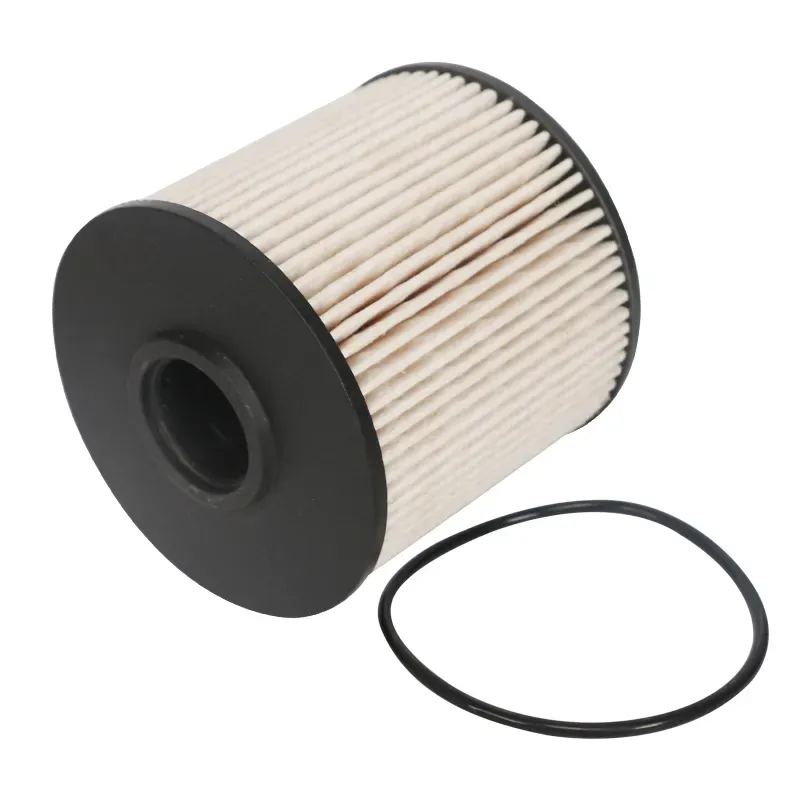Avr . 22, 2025 13:55 Retour à la liste
Car Fuel Filter: A Key Component for Engine Health and Performance
The Car Fuel Filter is an essential part of your vehicle’s fuel system, ensuring that clean fuel reaches the engine for optimal combustion. Over time, the filter can become clogged with dirt, rust, and other contaminants, leading to reduced performance and potential engine damage. In this guide, we’ll explore the importance of the Car Fuel Filter, factors affecting the car fuel filter price, and the process of car fuel filter replacement. By understanding these aspects, you can keep your vehicle running smoothly and efficiently.

What is a Car Fuel Filter?
The Car Fuel Filter is a small but critical component located in the fuel line between the fuel tank and the engine. Its primary function is to remove impurities from the fuel, such as dirt, rust, and debris, before it enters the engine. Clean fuel is essential for efficient combustion, which directly impacts your vehicle’s performance, fuel efficiency, and emissions.
Importance of a Car Fuel Filter
A well-functioning Car Fuel Filter offers several benefits:
Protects the Engine: By trapping contaminants, the filter prevents them from entering the engine and causing damage to fuel injectors, carburetors, and other components.
Improves Fuel Efficiency: Clean fuel ensures optimal combustion, which can enhance fuel efficiency and reduce emissions.
Ensures Smooth Operation: A clogged fuel filter can lead to engine sputtering, reduced power, and even stalling. Replacing it ensures consistent performance.
Extends Engine Life: Regular maintenance of the Car Fuel Filter can significantly extend the lifespan of your engine by reducing wear and tear.
Signs You Need a Car Fuel Filter Replacement
Knowing when to perform a car fuel filter replacement is crucial for maintaining your vehicle’s performance. Here are some common signs that your fuel filter may need replacing:
Engine Sputtering: If your engine sputters or hesitates during acceleration, it could be due to a clogged fuel filter.
Difficulty Starting: A dirty fuel filter can restrict fuel flow, making it harder to start your car.
Reduced Power: If you notice a lack of power or poor acceleration, the fuel filter may be to blame.
Check Engine Light: In some cases, a clogged fuel filter can trigger the check engine light.
Poor Fuel Efficiency: A restricted fuel flow can cause your engine to work harder, leading to decreased fuel efficiency.
Factors Affecting Car Fuel Filter Price
The car fuel filter price can vary depending on several factors:
Vehicle Make and Model: Filters for luxury or high-performance vehicles tend to be more expensive than those for standard models.
Filter Type: Inline filters, cartridge filters, and spin-on filters each have different price points.
Material and Construction: Filters made from advanced materials or with additional features, such as water separation, may cost more.
Retailer: Prices can vary between dealerships, auto parts stores, and online retailers.
How to Replace a Car Fuel Filter
Performing a car fuel filter replacement is a relatively straightforward task that can be done at home with basic tools. Here’s a general guide:
Locate the Fuel Filter: The filter is usually found along the fuel line, either under the car or in the engine bay. Refer to your vehicle’s manual for specific instructions.
Relieve Fuel Pressure: Before removing the filter, relieve the fuel system pressure by disconnecting the fuel pump fuse and running the engine until it stalls.
Remove the Old Filter: Use a wrench to disconnect the fuel lines from the filter. Be prepared for some fuel spillage and have a container ready to catch it.
Install the New Filter: Attach the new Car Fuel Filter in the correct orientation and secure the fuel lines. Ensure all connections are tight to prevent leaks.
Restore Fuel Pressure: Reconnect the fuel pump fuse and turn the ignition on to restore fuel pressure. Check for any leaks before starting the engine.
The Car Fuel Filter is a vital component that ensures clean fuel reaches your engine, protecting it from damage and maintaining optimal performance. Understanding the factors that affect the car fuel filter price and knowing how to perform a car fuel filter replacement can save you time and money in the long run. Regular maintenance and timely replacements will keep your engine running smoothly and efficiently, ensuring a better driving experience.
Car Fuel Filter FAQs
Q1: How often should I replace my car fuel filter?
A: Most manufacturers recommend replacing the Car Fuel Filter every 20,000 to 40,000 miles, but this can vary depending on your vehicle and driving conditions.
Q2: What are the signs of a clogged fuel filter?
A: Common signs include engine sputtering, difficulty starting, reduced power, poor fuel efficiency, and the check engine light turning on.
Q3: Can I replace the fuel filter myself?
A: Yes, a car fuel filter replacement is a simple DIY task if you have basic tools and follow your vehicle’s manual.
Q4: How much does a car fuel filter cost?
A: The car fuel filter price typically ranges from 10to10to50, depending on the vehicle make, filter type, and brand.
Q5: What happens if I don’t replace my fuel filter?
A: A clogged fuel filter can reduce engine performance, decrease fuel efficiency, and potentially cause engine damage over time.
-
ANTFIL Premium Oil Filters-Ultimate Protection for Your Engine
NouvellesJul.21,2025
-
ANTFIL Oil Filters-Superior Protection for Toyota&Nissan
NouvellesJul.21,2025
-
ANTFIL Fuel Filters-Durable Engine Filters
NouvellesJul.21,2025
-
ANTFIL Filters-Protection For Your Products
NouvellesJul.21,2025
-
ANTFIL Cabin Filter-Clean Air for Your Drive
NouvellesJul.21,2025
-
ANTFIL Air Filters-Pure Air Solutions for Every Space
NouvellesJul.21,2025


